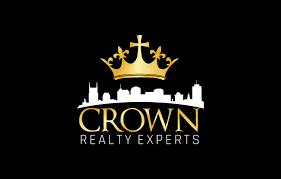When moving into a new community, HOA’s can be either a blessing or your worst nightmare. Here’s what to know before you buy in these areas to ensure you avoid hiccups down the road.
Of all the owner-occupied homes in America, a whopping 53% of them are managed by a Homeowner’s Association. This means that over 40 million households are living under rules imposed by a resident-elected Board of Directors, which essentially serve as the entirety of your local government. This can have massive implications for what home ownership could look like for you, so it is important to be familiar with these organizations before signing up to pay their dues.
HOA’s have very broad powers based on guidelines that differ from community to community. With that being said, it is standard that these associations dictate just about everything in the neighborhoods they manage. In some states, this can go as far as them having the power to take your home if you don’t pay your monthly HOA dues.
With so much power, it goes without saying that these associations can become something of totalitarian regimes. Citizens living in these communities often say there is limited power to go against the HOA board, and they typically don’t act as advocates for the homeowners as they are intended to. However, what is frightening is that these HOA boards are often made up entirely of volunteers who have no skills or experience in engineering or road construction, but they have the legal right to determine the speed limits and infrastructure in their communities.
Before moving into a home that is managed under a HOA, it is important to be familiar with what they call the CC&R’s: Covenants, Conditions, Restrictions and Reservations. In this document is all of the information regarding what is legally enforceable in your district with monetary fines, and what right the association has to foreclose on your property. In some communities, the HOA even has assumed the right to fine people for inappropriate language.
It is crucial to understand these rules, because HOA’s are notoriously aggressive for getting on people who are falling behind on their dues. These associations have so much influence that, in some states, they can even wipe out the first deed of trust that the banks may have to a foreclosed home. This means that, even if you collect a couple thousand dollars of unpaid HOA dues, they reserve the right to foreclose your million-dollar home. As an unintended consequence, huge mortgages have been wiped out when the association sells homes worth millions to investors for just a couple thousand to cover the missing dues.
There is certainly an appeal to the maintenance-free living that an HOA community can provide. For many families, having this lifestyle was the right choice for them. However, it is important to be familiar with the CC&R’s of your respective association before buying in order to save yourself from future dilemmas. A contingency on approval of the CC&R is a good idea when buying a house in a subdivision that has an HOA. It’s not all bad as HOAs also ensure your neighbor does not get out on hand on types of fencing, colors of the house, etc. As always, knowing as much as possible prior to getting into it is essential. The professional Realtors at Crown Realty Experts can assist you with navigating these potential pitfalls.


